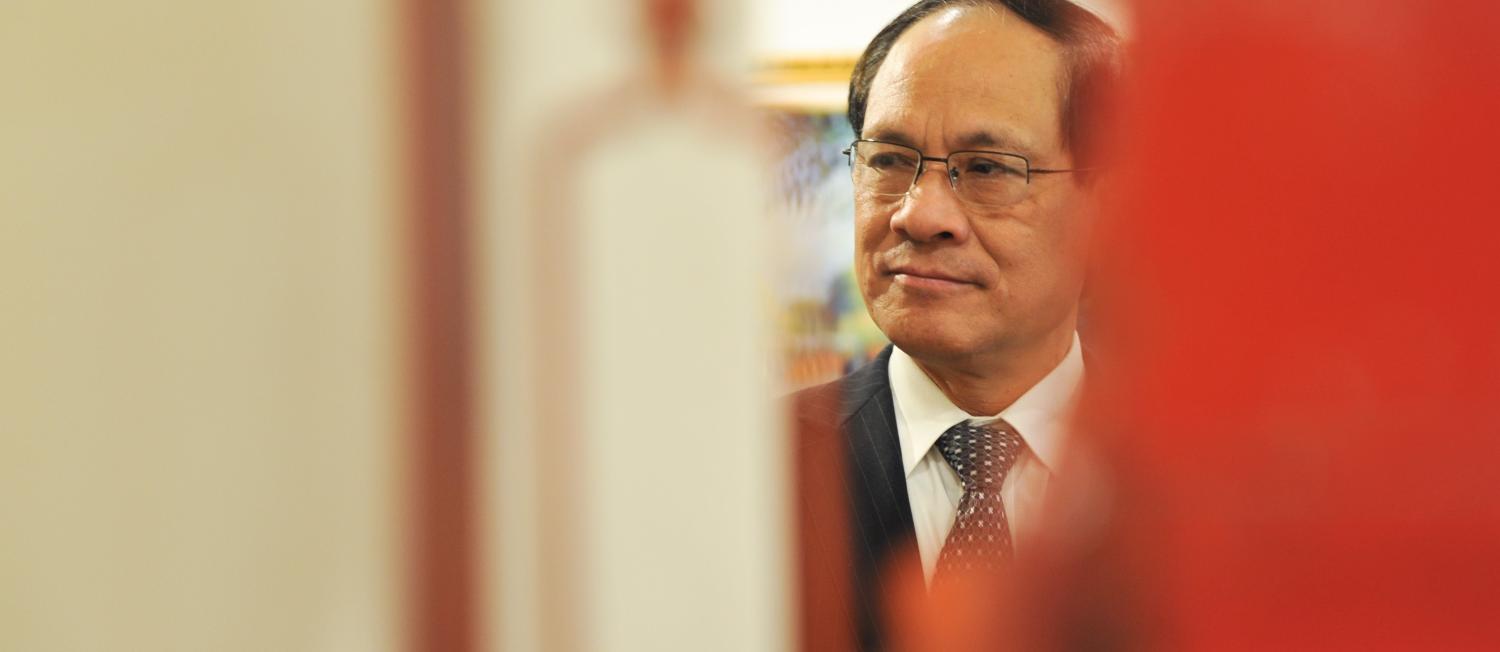Just over a year ago, Manila was celebrating an unprecedented international ruling in its favour against China in the disputed South China Sea. This weekend, the city played host to the Association of Southeast Asian Nations (ASEAN) Ministerial Meeting, but every trace of enthusiasm for the ruling was gone. In its place was a carefully worded communique putting the onus on future summits to resolve the regional quandary.
Where the South China Sea was once the big ticket item for the bloc's summits, this weekend was dominated by another lingering regional flashpoint – North Korea. With 27 foreign ministers from around the world attending, including the US, Russia and China, all eyes were on North Korea Foreign Minister Ri Su-yong. The Summit was held as the United Nations Security Council voted unanimously for fresh sanctions following the testing of two intercontinental ballistic missiles in July. ASEAN released a statement mid-summit calling for full compliance with UN sanctions. 'We reiterate our support for the complete, verifiable, and irreversible denuclearisation of the Korean Peninsula in a peaceful manner, call for the exercise of self-restraint, and underscore the importance of creating conditions conducive for dialogue to de-escalate tensions,' it said.
Accusations of US involvement in the statement began almost immediately, with Cambodia (often acting as a proxy for China in the organisation) reportedly stalling. But Robespierre Bolivar, a spokesman from the Philippines foreign ministry, noted that geographical proximity to the Korean peninsula is the primary driver for ASEAN’s involvement.
Predictions of tense discussions between Su-yong and his Chinese counterpart Wang Yi (and a pointed snubbing from Tillerson) were proven correct. After a bilateral meeting on the sideline of the Summit, Wang told media he'd warned North Korea off testing the 'goodwill' of the international community and to take a 'double suspension' approach, in which North Korea would cease nuclear testing and the US and Japan would end military drills in the area.
Tillerson met with South Korean Foreign Minister Kang Kyung-wha on the final day of the Summit, with the pair telling media the outcome was 'good.' China appears to be less convinced, with editorials in state-overseen newspapers ranging acknowledging the need to end nuclear testing but also calling for South Korea and the US to accept blame for the current situation.
If the arrival of Tillerson in the region was intended to indicate a renewed interest in Southeast Asia for the Trump administration, the bloc's statement on the South China Sea indicates it may well be too late.
Just a year ago, The Hague tribunal ruling (in favour of the Philippines and against China) offered fresh hope for a power rebalance in the tumultuous waters. A concerted campaign from proxies (specifically Cambodia) and fears from other members that continued vocal support for claims could see Chinese investment in much-needed infrastructure diminish has led to increasingly watered-down statements.
This particular statement focused largely on the need to demilitarise and noted the concerns of 'some' members in land reclamation projects. 'We further reaffirmed the need to enhance mutual trust and confidence, exercise self-restraint in the conduct of activities and avoid actions that may further complicate the situation, and pursue peaceful resolution of disputes in accordance with international law,' the statement said.
A delay in the release of the statement is, as both the bloc and watchers note, 'standard practice', and typically leads to speculation over splits among member states and debates over specific wording. This Summit appears to be no different, with anonymous sources pointing at Vietnam at to explain the delay. With the Philippines cosying up to Beijing under President Rodrigo Duterte, Vietnam is currently the loudest claimant criticising Chinese expansion in the waters.
The largest development is the prospect of a 'negotiating framework for a code of conduct'. This framework, which will not be publicly released, is aimed at creating the fabled code that would, ideally, reflect the 2002 Declaration of Conduct (DOC) of Parties in the South China Sea (largely ignored by just about every party to date).
Reuters noted that some watchers believe China's renewed interest in the code of conduct 'after 15 years of delays is to drag out the negotiating process to buy time to complete its strategic objectives in the South China Sea, through which more than US$3 billion of ship-borne trade passes annually'.
Further announcements on the code of conduct are expected in November, Wang Yi told media in Manila over the weekend, before warning again against foreign interference. Rappler Manila reported the Foreign Minister saying the announcement would be made: 'when the situation in the South China Sea is generally stable, and if there is no major disruption from outside parties'. For their part, US diplomats have attempted to reassure ASEAN current US interests in the region extend beyond a bargaining chip for China to wrangle Pyongyang.

